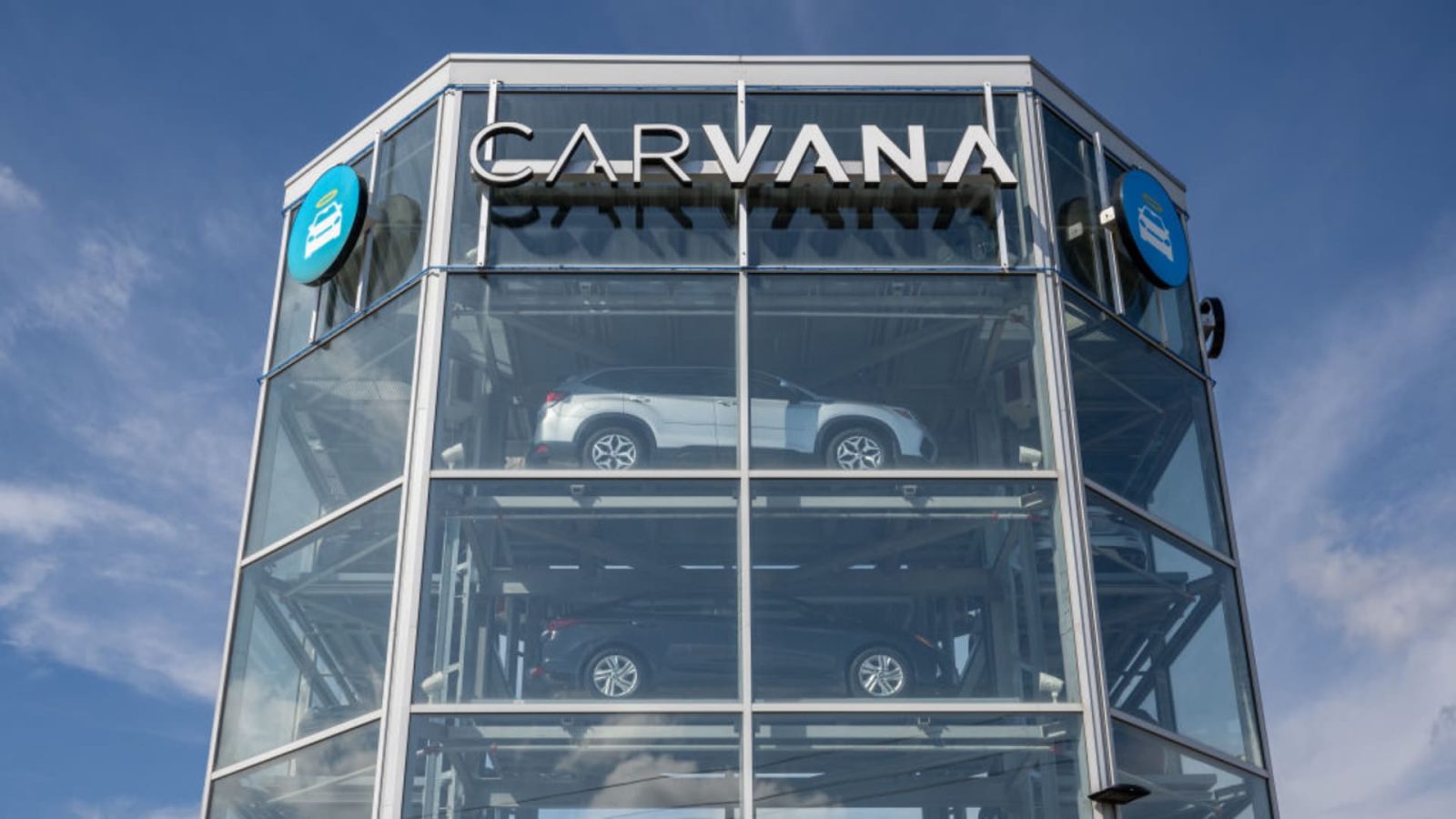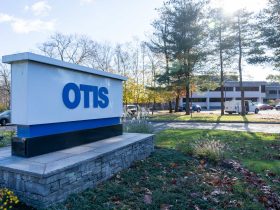Shares of Carvana popped more than 30% during after-hours trading Wednesday after the automaker reported record quarterly results and turned a profit during the first quarter.
Here is how the company performed in the first quarter, compared with average estimates compiled by LSEG:
- Earnings per share: 23 cents — it was not immediately clear if it was comparable to the loss of 74 cents expected
- Revenue: $3.06 billion vs. $2.67 billion expected
Carvana reported record first-quarter net income of $49 million, compared to a $286 million loss during the prior-year period. It also posted an all-time-best adjusted earnings before interest, taxes, depreciation and amortization of $235 million, up from a $24 million loss a year earlier.
The company’s gross profit per unit, or GPU, which is closely watched by investors, was $6,432. Carvana’s adjusted profit margin for the quarter was 7.7%.
“In the first quarter, we delivered our best results in company history, validating our long-held belief that Carvana’s online retail model can drive industry-leading profitability while delivering industry-leading customer experiences,” Carvana CEO and Chairman Ernie Garcia III said in a release.
The results follow a major restructuring by the company over the past two years to focus on profitability rather than growth, after bankruptcy concerns when Carvana’s stock lost nearly all of its value in 2022.
Shares of the company have recovered since then. They had climbed roughly 67% so far this year before the company reported its first-quarter results. The stock closed Wednesday up about 5% at $87.09 per share.
In a joint letter to shareholders Wednesday, Garcia and Chief Financial Officer Mark Jenkins said the company is now focused once again on growth, but doing so profitability.
“We are now focused on our long-term phase of driving profitable growth and pursuing our goal of becoming the largest and most profitable auto retailer and buying and selling millions of cars,” read the shareholder letter.
For the second quarter, the company said it expects a sequential increase in its year-over-year growth rate in retail units, and a sequential increase in adjusted earnings before interest, taxes, depreciation and amortization.
Read the full article here












Leave a Reply